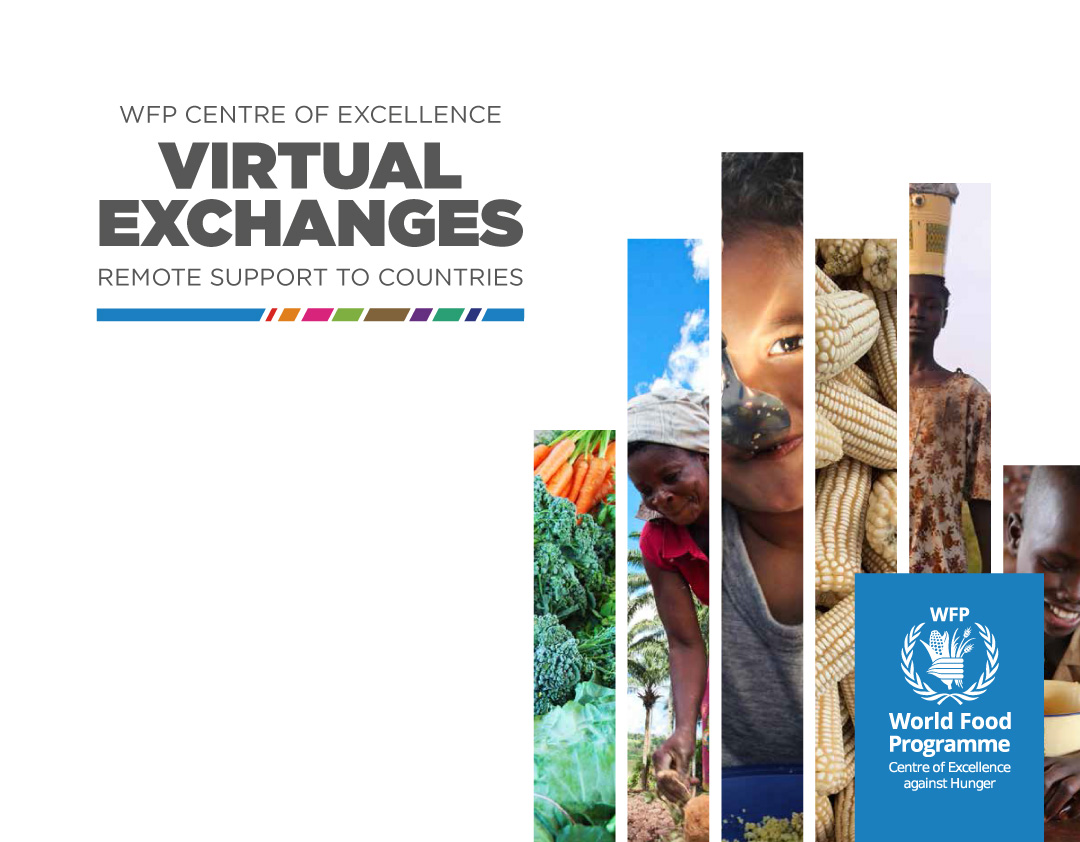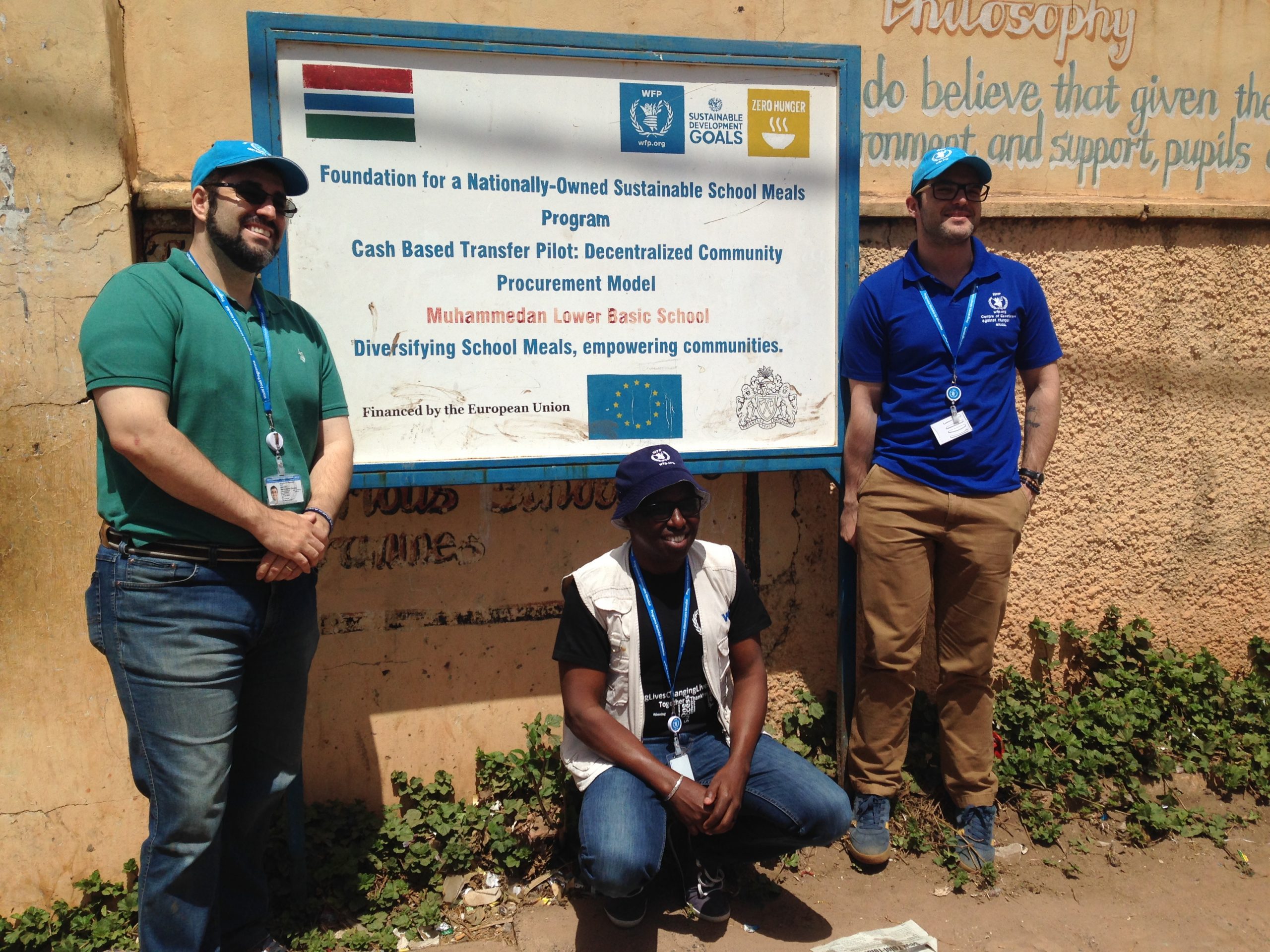In use since 2019, remote assistance methodology ensures continuous support to partner countries; due to COVID-19, tools are being improved.

In recent weeks, the WFP Centre of Excellence Against Hunger Brazil team – as well as other United Nations teams around the world – has had to adapt to restrictions imposed by the COVID-19 pandemic. The Centre has activated its Business Continuity Plan and all employees are working from home. However, the Centre had already started to adopt remote assistance methodologies to support countries back in 2019. With new travel restrictions due to the pandemic, the team has been improving these tools so that what was previously done in person can continue to take place remotely.
One of those face-to-face jobs directly affected by new restrictions is the support we are providing to the WFP regional office for West and Central Africa (WFP Regional Bureau Dakar) in developing regional plans and strategies for WFP programmes in schools. The Centre has been providing remote support to countries in that region for some time, but new methodologies have had to be developed so that some activities stay on track, such as the ones carried out by the regional office, which coordinates the WFP work in 20 countries.
According to Abdi Farah, Regional School Feeding Advisor at the Regional Bureau in Dakar, the office has also activated its Business Continuity Plan and staff are working from home. “Overall, the office is fulfilling quite well its core function of technical support, oversight and strategic/policy guidance to country offices in the region. One example is the engagement with WFP Centre of Excellence in Brazil: two colleagues were supposed to come on a mission to help the regional bureau to provide strategic support, but their mission was cancelled at the last minute due to COVID-19 travel restrictions. The support is being provided by the team in Brazil working effectively, though remotely, and progressing with agreed workplan and targets”, says Abdi Farah.
Sharon Freitas, Head of Programme at the WFP Centre of Excellence, stresses the importance of rapid adaptation so that countries’ projects are not affected. “It is important to note that, although everyone in the office is working from home, the Centre continues to operate. We already have extensive experience in supporting countries remotely and we will continue to provide that support, using new methodologies”, she said.
Adapting work methodologies
The support we are providing to the Dakar office is part of the development and implementation of the WFP Global School Feeding Strategy 2020-2030 and it is divided into two phases. The first includes the development of a concept note for planning the regional implementation of the Global School Feeding Strategy. In order to do this, it is necessary to carry out a situation analysis and assess the capacities of the WFP country offices that will be part of the project: Benin, Burkina Faso, Cameroon, Central African Republic, Chad, The Gambia, Ghana, Guinea-Bissau, Guinea, Cote d’Ivoire, Liberia, Mali, Mauritania, Niger, Senegal, Sierra Leone, São Tomé and Príncipe and Togo. Thereafter, the Centre of Excellence team will prepare a set of recommendations and a budget proposal for implementing the policy between 2020 and 2030.
For this first stage, several regional activities were initially planned to be carried out in Senegal, including a workshop for data collection with the presence of partners. As an alternative, the Centre of Excellence team developed a research methodology that can be done remotely, including questionnaires and interviews by audio and video conference.
In addition, the team will also use desk research to support a situation analysis, based on a set of documents sent by the regional office. Telephone interviews and video calls will also be conducted with managers of the regional office and WFP representatives in the countries. This will serve to collect local experiences that will then be used as a basis for local knowledge exchanges between participant countries.
“An interesting aspect of this work is that it will not be solely focused on school meals, but also on an integrated agenda, which will include topics on nutrition, gender, family farming and capacity building in countries,” said Bruno Magalhães, part of the Programme team at the WFP Centre of Excellence Brazil.
Once the first phase of the work is completed and the concept note approved, the second stage of the work begins, which is the design of a roll-out strategy, built in conjunction with the country offices.

Experts from the Centre of Excellence met in 2019 for an assessment mission to Banjul, The Gambia. From left to right: Igor Carneiro (Centre of Excellence Brazil), Abdi Farah (regional office in Dakar) and Bruno Magalhães (Centre of Excellence Brazil) on a visit to a pilot school part of the school feeding programme in the region.
Risks
Although remote support is already a reality at the WFP Centre of Excellence, this type of work also has its limitations. Part of the adaptation effort at a time when a large proportion of the teams is out of the office involves risk analysis and mitigation.
Abdi Farah mentions possible limitations that could be more challenging when interviews, for example, are not conducted face-to-face. “Getting responses to a specific online questionnaire does not give much room for subsequent interactions for further questions and clarifications, which is quite possible during face-to-face interactions, but still follow-up calls could be scheduled as needed with internal and external colleagues”, he says.
Continuous remote support
Since 2019, the WFP Centre of Excellence against Hunger Brazil has been preparing to act more remotely, with the launch of the Virtual Exchanges project. The structure of the project allows interested countries to have access to technical information and details about the Brazilian experience with school meals through documents, videos, online classes and remote assistance, whether by email, phone or video conference.
In addition to using the Brazilian experience as an example, the Centre also seeks technical solutions in other countries on issues of food security, nutrition and school feeding, and facilitates the exchange of knowledge and best practices among other countries.
Much of this work is done through daily and remote contact, through political advice, advocacy work with governments, information sharing, and joint drafting or reviewing documents – such as legislation, development plans, national strategies and programme documents on school feeding.
Remote and continuous communication with each supported country is already an essential component of cooperation, as it guarantees the production of sustainable results.
On the link below, you will find a summary of our services, a library with technical documents and a contact form. Soon, the Virtual Study Visits video series will be available.
Access the page Virtual Exchanges
Click here to download the Virtual Exchanges Brochure





